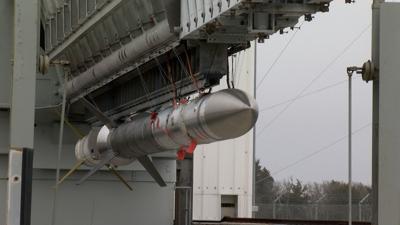WALLOPS ISLAND, Va. - Millions of people across the United States will be looking up to the sky during a total eclipse of the Sun on Monday afternoon.
The Sun is and amazing thing, It's a massive ball of nuclear fusion spitting out all kinds of radiation throughout the Solar System. Some of the radiation, also called the "solar wind," hits the Earth's atmosphere, causing benign and beautiful phenomena such as the aurorae, but can also cause trouble with communication systems.
"What it does is it reduces the strength of your signal, maybe more static in the signal, maybe some data loss," said Dr. Aroh Barjatya of Embry-Riddle Aeronautical University, one of the partners in the project.
A total solar eclipse is an opportunity to observe how the Moon's shadow causes ionic perturbations, or changes in the atmosphere that can affect electronic systems on Earth.
Scientists at the NASA Wallops Flight Facility will launch three Black Brant IX sounding rockets during the eclipse to take careful observations and measurements.
"We are trying to understand why they don't happen all the time, why those perturbations happen in certain locations around the eclipse," Barjatya said.
Wallops is working with several groups, including Embry-Riddle Aeronautical University, whose students are leading Monday's eclipse research.
"These are all instruments built by students, so they designed it, they built it, they get to launch it, and we get to analyze the data, it's a neat experiment," Barjatya said.
The same research was done at White Sands Missile Range in 2023, to observe the annular solar eclipse in New Mexico.
"It'll be interesting, just the change in location from New Mexico to Wallops, do we see anything different based on the different eclipses," said Cathy Hesh with the Wallops Flight Facility.
Three rockets will be fired from Wallops, one before, one during, and one after Monday's eclipse.
Researchers hope that the data they gather can help fortify systems on Earth to prevent events like the 1989 blackout in eastern Canada, caused by a solar storm.
-WBOC's Amy Diffenderfer contributed to this report.


